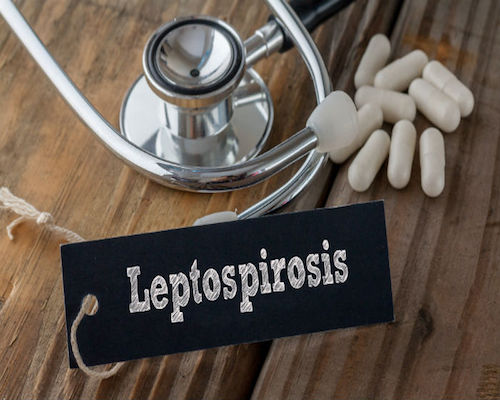New Delhi, July 24,2018 :
Is a zoonosis with protean manifestations caused by pathogenic spirochetes of the genus Leptospira.
The organism infects a variety of wild and domestic mammals, especially rodents, cattle, swine, dogs, horses, sheep, and goats. Animals can be asymptomatic or develop clinical infection, which can be fatal. Reservoir animals may shed the organism in their urine intermittently or continuously throughout life, resulting in contamination of the environment, particularly water.
Humans most often become infected after exposure to environmental sources, such as animal urine, contaminated water or soil, or infected animal tissue through cuts or abraded skin, mucous membranes, or conjunctiva.
Leptospirosis may manifest as a subclinical illness followed by seroconversion, a self-limited systemic infection, or a severe, potentially fatal illness accompanied by multiorgan failure.
Clinically apparent leptospirosis presents with the abrupt onset of fever, rigors, myalgias, and headache in 75 to 100 percent of patients.
Conjunctival suffusion in a patient with a nonspecific febrile illness should raise suspicion for the diagnosis of leptospirosis
Most cases of leptospirosis are mild to moderate. However, the course may be complicated by renal failure, uveitis, hemorrhage, acute respiratory distress syndrome with pulmonary hemorrhage, myocarditis, and rhabdomyolysis.
The majority of leptospirosis infections are self-limiting.
Antimicrobial therapy shortens the duration of illness and reduces shedding of the organism in the urine.
Treatment with oral doxycycline or oral azithromycin are the frug of choice.
These agents are also effective for rickettsial disease, which can be difficult to distinguish from leptospirosis.
Doxycycline should be avoided in children <8 years of age unless no other treatment options are available and in pregnant women; reasonable alternatives include azithromycin or amoxicillin.
In severe leptospirosis parenteral penicillin, doxycycline, and third-generation cephalosporins are all acceptable options.
There is no human vaccine widely available.
Prevention measures include avoiding potential sources of infection, administration of prophylaxis for individuals at high risk of exposure, and animal vaccination.
Prophylaxis with doxycycline is reasonable







